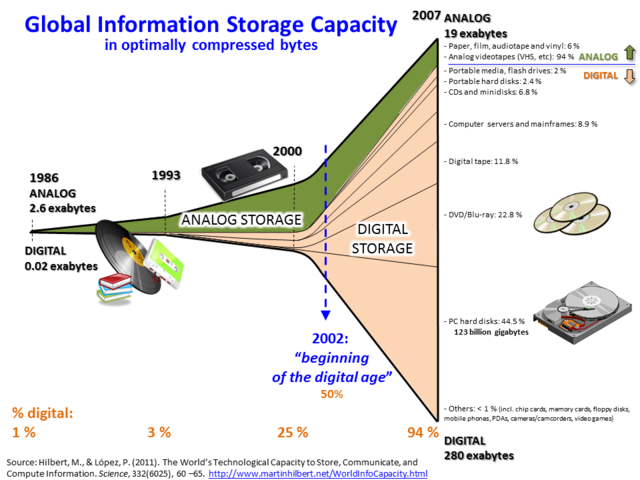Big data: Difference between revisions - Wikipedia
 Article Images
Article Images
Content deleted Content added
Line 4: [[File:Hilbert InfoGrowth.png|thumb|right|350px|Growth of and Digitization of Global Information Storage Capacity [http://www.martinhilbert.net/WorldInfoCapacity.html Source]]] Data has always been '''Big'''. The one aspect that differs now, if compared with the past, would be the sheer scale and accessibility of '''Data''', which is the direct result of the super efficient speeds in which data can now be computed. <ref>{{cite web|last1=Smith|first1=Steve|title=You Need A Weatherman To Know Which Way The Data Flows|url=http://www.mediapost.com/publications/article/189909/you-need-a-weatherman-to-know-which-way-the-data-f.html|website=mediapost.com|publisher=Data and Targeting Insider|accessdate=2 February 2015}}</ref> '''Big Data''' is therefore an all-encompassing term for any collection of large [[data set]]s that were once difficult to process.
The challenges include analysis, capture, curation, search, sharing, storage, transfer, visualization, and privacy violations. The trend to larger data sets equates to additional information derivable from analysis of a single large set of related data, as compared to separate smaller sets with the same total amount of data, allowing correlations to be found to "spot business trends, prevent diseases, combat crime and so on."{{r|Economist}} Scientists, Practitioners of Media and Advertising and Governments alike regularly encounter limitations due to large data sets in many areas. The limitations affect [[Web search engine|Internet search]], [[finance]] and [[business informatics]]. | |||